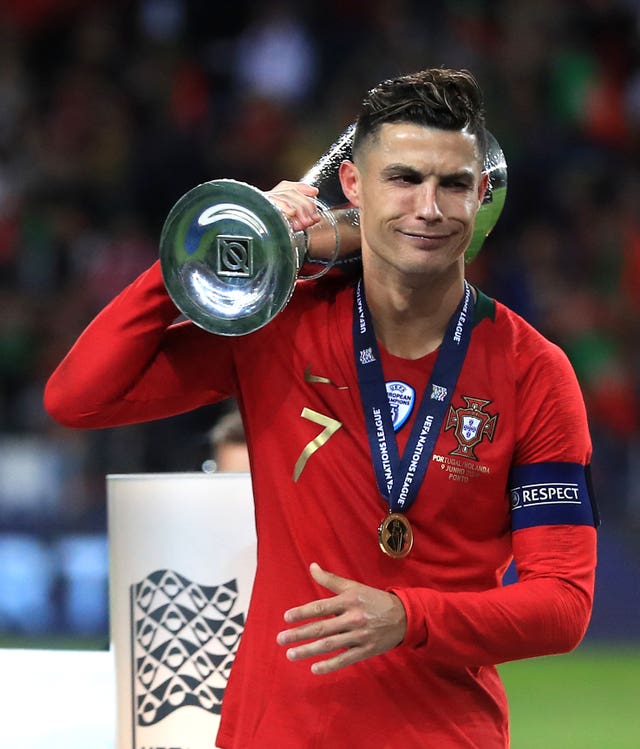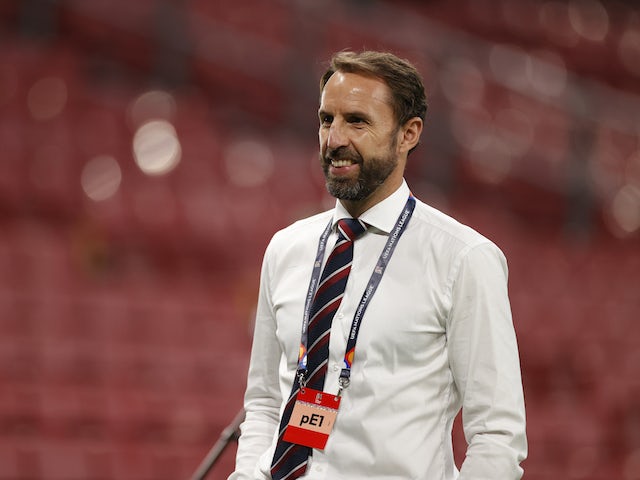Gareth Southgate hopes coaches are consulted over how the Qatar World Cup in 2022 is fitted around the club season – but says similar decisions in the past have been made without their input.
The England manager is now preparing in earnest for those finals after discovering his side will face Poland, Hungary, Albania, Andorra and San Marino in qualification, with the first matches taking place in March next year, in the run-up to the rescheduled Euro 2020.
Southgate knows there will be challenges over how England and other nations prepare for both competitions, with the Middle East tournament set to create havoc for the club game as it takes place in November and December.
Time to find out what Gareth Southgate makes of the #ThreeLions' 2022 @FIFAWorldCup qualifying group! https://t.co/UC6wz6z1k2 — England (@England) December 7, 2020
“I spoke before about the missed opportunity I felt given where that World Cup sits to juggle the whole calendar really – the UEFA calendar and the individual leagues,” he said.
“I would hope that within all the discussions that coaches are consulted. It doesn’t have to be me, but maybe coaches of the big clubs, maybe all the national managers, whatever it might be.
“I know Arsene Wenger is heavily involved at FIFA so I have confidence that he is going to put the right sorts of arguments on the table and think about player welfare, because I know he’ll be thinking about that.
“But generally speaking a lot of those decisions are made without the input of coaches I have to say. It wouldn’t be clear to me exactly how all those decisions join up across the different federations and the different associations really.”
Before that Southgate has Euro 2020 coming up next summer.
Liverpool manager Jurgen Klopp has warned Southgate may inherit a jaded bunch of players, and be missing a number of his top stars as a consequence of a punishing fixture schedule, alongside the failure of a sufficient majority of clubs to stick with five substitutes for the 2020-21 season.
Southgate admits there is only so much he and the Football Association can do about it.
“I know that there have been talks about the FA Cup going that route (to five substitutes) so they’re the bits at the FA that we can control,” he said.
“I think Jurgen will be frustrated because in Germany the DFB and the Bundesliga work so closely together on those things – we don’t have that power on fixtures with the Premier League and we don’t have that power on the substitutions.”
England will hope to have enough quality to book a place in Qatar by finishing top of their six-team group, but Poland appear the biggest danger, and in particular star Bayern Munich striker Robert Lewandowski.

“He’s a fantastic player. He’s as good a number nine as there is – him and Harry (Kane) and (Romelu) Lukaku when you think about number nines around Europe, they’re three that immediately come to mind,” Southgate said.
“He’s a player that can hurt you and his goalscoring record for his country is phenomenally good.”
The Poles have faced the Three Lions in qualifying for the 1974, 1990, 1994, 2006 and 2014 World Cups, as well as taking on England in the finals in Mexico in 1986.
England and Poland also met in qualifying for the 1992 and 2000 European Championships.
Southgate said: “There’s a great history of that fixture. There was a spell when we seemed to draw them every time.”
Wales, who were in the second pot of seeds, face world number one side Belgium in a five-team group also containing the Czech Republic, Belarus and Estonia.
The game against Belgium will stir memories of Wales’ famous Euro 2016 quarter-final victory over them.
We will be facing the side ranked number one in the world!@FIFAWorldCup | #TogetherStronger pic.twitter.com/rZpm4litj2 — Wales 🏴 (@Cymru) December 7, 2020
They are unbeaten in their last four matches against Roberto Martinez’s side, and Wales caretaker boss Robert Page said: “I’d like to think they’ll be looking at us as a nation moving forward.
“They’ll be fully aware of our results and will be looking at us with a little bit more respect maybe. We’re pretty pleased with the group.”
Scotland are up against Denmark, Austria, Israel, the Faroe Islands and Moldova in Group F as they seek a first World Cup qualification since 1998.
Their boss Steve Clarke said: “We have to be happy with the draw but very, very wary that it will be a dangerous draw as well.”
Northern Ireland and the Republic of Ireland were placed in five-team groups.
Northern Ireland face Italy, Switzerland, Bulgaria and Lithuania, and national team boss Ian Baraclough said: “There are only three Northern Ireland managers who have qualified for major tournaments, so for me it would be a massive achievement, and not just for me, for the whole country.
“These group stages are something our supporters really look forward to.”
The Republic will face European champions Portugal, along with Serbia, Luxembourg and Azerbaijan.

Republic boss Stephen Kenny said: “Portugal are the European champions and the Nations League champions. Serbia, of course, have a great pedigree. Luxembourg are a vastly improved team and Azerbaijan, so it’s an exciting group.”
The 10 group winners qualify for the finals with a further three teams qualifying via the play-offs to be played in March 2022.
The play-offs will be a 12-team tournament comprised of the 10 group runners-up plus the two highest-ranked teams from the Nations League who did not finish in the top two of any group.
The 12 teams will be split into three paths, with the winner of each securing qualification.








